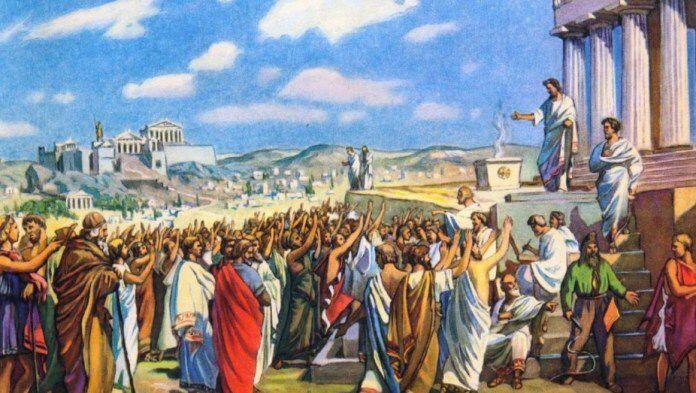
The historical roots of deliberative democracy can be traced back to ancient Greek philosophers like Aristotle, who emphasized the importance of public discourse and debate in decision-making processes.
Aristotle believed that through deliberation, citizens could engage in reasoned and informed discussions, ultimately leading to better decisions for the community.
The first practical applications of deliberative democracy principles can be seen in the ancient Athenian democracy, where citizens would gather in the Ecclesia (assembly) to discuss and vote on important matters of state.
The concept of deliberative democracy gained renewed attention during the Enlightenment period, with thinkers like Jean-Jacques Rousseau and Immanuel Kant emphasizing the importance of public reason and collective decision-making.
Rousseau's concept of the "general will," which he believed could be formed through deliberation and consensus, was particularly influential.
In the modern era, deliberative democracy has been championed by political theorists like Jürgen Habermas and John Rawls.
Habermas's theory of communicative action and the "ideal speech situation" emphasized the importance of free and open discourse, where individuals could engage in rational and reasoned debate without coercion.
The development of deliberative democracy as a practical approach to decision-making has been influenced by various experiments and initiatives, such as citizens' juries, consensus conferences, and deliberative polling.
These methods aim to create structured environments where diverse groups of citizens can engage in informed and facilitated discussions on complex issues, with the goal of reaching well-reasoned and consensus-based decisions.
In recent decades, deliberative democracy has been adopted in various forms by governments and organizations around the world.
For example, participatory budgeting, where citizens directly deliberate on the allocation of public funds, has been implemented in numerous cities worldwide.
Additionally, many countries have established citizens' assemblies or conventions to deliberate on constitutional reforms or other significant policy issues.
Overall, the historical roots of deliberative democracy can be traced back to ancient philosophical concepts.
Its practical applications and further development have been shaped by modern political theory and the desire to create more inclusive and participatory forms of decision-making.
